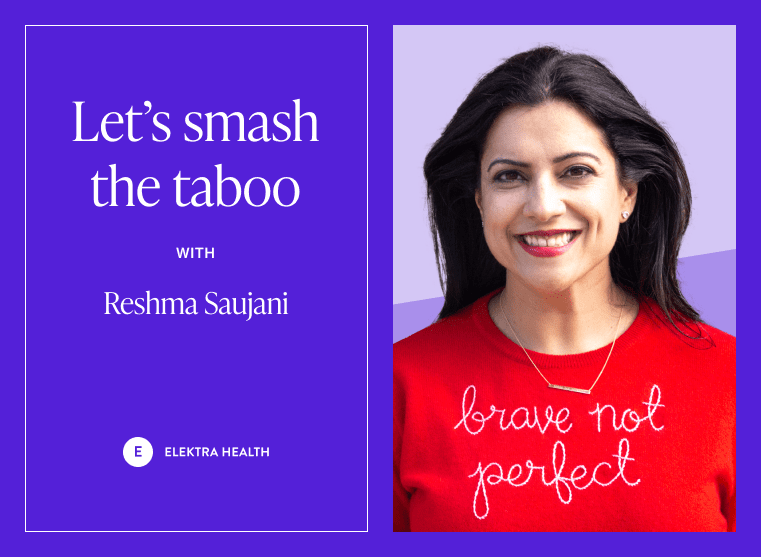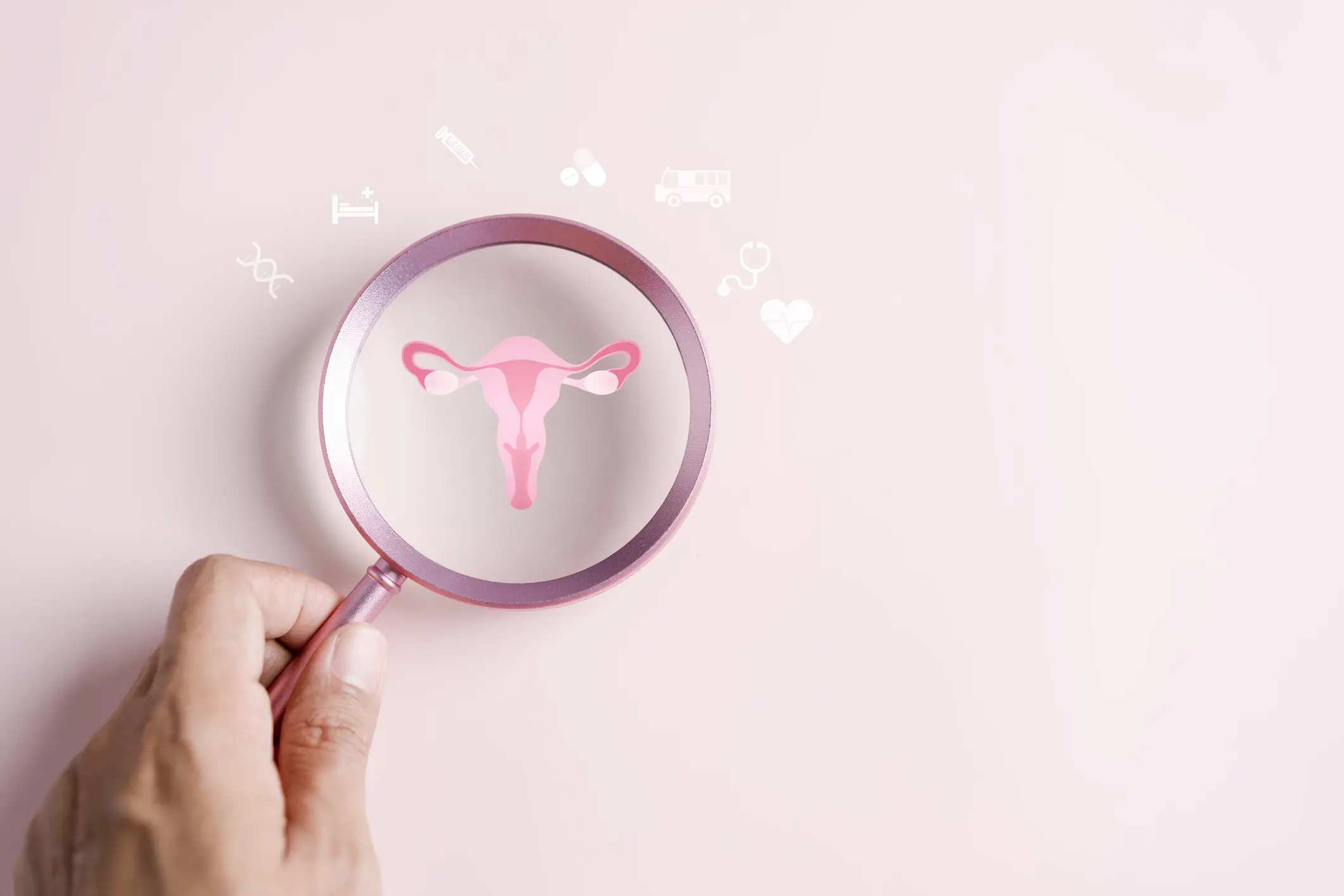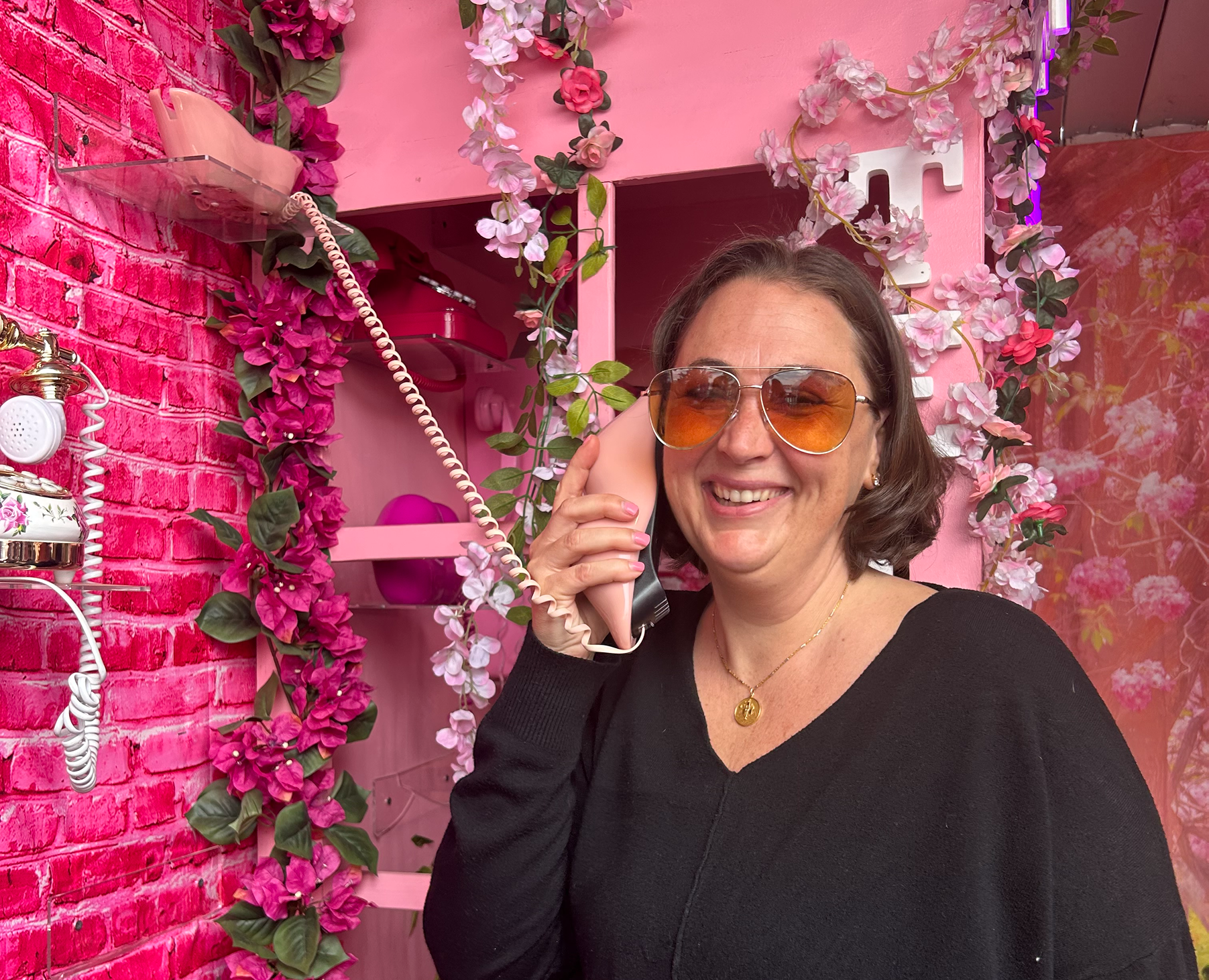
Published on Jan 15, 2021
Last modified on Mar 08, 2021
#TabooSmasher Spotlight: Reshma Saujani, founder of Girls Who Code and author of Brave, Not Perfect
4 min read

Reshma Saujani is on a mission to build a bravery revolution. She is the founder of Girls Who Code, a global movement to close the gender gap in computer science and technology. The movement is founded on the belief that we need more women and people of color at the table in order to innovate and find solutions to complex problems. Through their programs, Girls Who Code has taught 300,000 girls to code and reached millions of girls across the world. A self-proclaimed “perfectionist in recovery,” Reshma shared her insights into letting go of perfectionism and practicing bravery in her book, Brave, Not Perfect.
What comes to mind when you think of menopause?
Change, disruption, freedom, and confusion.
I want to know more about menopause. It helps that I have a person in my close friend group who’s gone through it. Coming from an Asian family where we don’t talk about these things, my mother didn’t share anything like, “I had menopause at fifty, this is what you need to do.”
Which menopause symptoms have you experienced?
I’m forty-five and my body has changed so much. I’ve started feeling some of it, like hot flashes and changes in my hormones. I did go see my OBGYN and we talked through it, so I’m paying attention to it.
Up until now, what has your hormonal health journey been like?
I recently wrote an article in Vogue about my fertility journey and having a baby via surrogate.
The first time I got pregnant was probably a decade ago. I was newly engaged to my husband and we had a surprise pregnancy. I was so excited. We switched our wedding plans immediately because all we were thinking about was what was going to happen in the next 9-10 months. And then, when we went for our heartbeat scan, there was no heartbeat. We had a miscarriage, the first miscarriage of five over the next ten years. I never really understood much about miscarriages and fertility until I started experiencing this, as well as the shame that accompanies these experiences. It felt like it almost would be easier to tell somebody you had cancer than to tell them that you had just lost a baby.
I spent a decade being pregnant, on and off and on and off. All the while, I was building my global nonprofit. It’s almost like, every success I had, like my TED Talk and the launch of Girls Who Code, was punctuated by another miscarriage.
I was getting pregnant easily and the analyses showed that the fetuses were healthy, so it didn’t make sense. Every time, the doctors would tell me that I was old and that there was something wrong with my eggs, but nobody was helping me try to figure out what was wrong. I finally took my medical problem into my own hands and found an incredible doctor. He diagnosed me with APS (Antiphospholipid Syndrome) which essentially means that every time I got pregnant, my body thought something was invading my body.
“Throughout the decade of my fertility issues, I gained the ability to share my story with others and make people feel less alone.”
I was pretty much on bed rest throughout my entire pregnancy and everything was just touch and go the whole time, but I eventually had my beautiful baby boy. And afterward, I felt like I had figured it out. Of course, when I tried to have my second child, I had another string of miscarriages. I think that, after a certain point, it no longer makes sense to keep trying, for the sake of your own physical health. So, I decided to pursue surrogacy, and it was one of the best decisions that we ever made.
I’ve really been very vocal about my experiences with miscarriages, fertility, and surrogacy. Again, there’s so much shame around it. But now, I feel like I almost have my own little fertility service! People email me on Twitter, Facebook, and Instagram, and DM me their problems. Because of this, I feel like I’ve been involved in so many women’s fertility journeys.
I always say, “God never gives you what you can’t handle. There’s always a reason why.” I wondered, “Why me? Why is this happening to me?” Throughout the decade of my fertility issues, I gained the ability to share my story with others and make people feel less alone.
What helped you throughout your hormonal health journey? Did you have any emotional, practical, or spiritual support as you navigated this?
I was lucky to have my sister by my side. Being a doctor, she empowered me to ask questions. I also had an amazing acupuncturist who helped me gain the sense that my baby was still out there. I always tell women, “Your baby is deciding when they want to come.” Everyone I know, who wants to be a mom, has become a mom. Throughout that time in my life, I would literally put all of my anxiety, stress, and depression into my fertility problems. It was almost like a self-fulfilling prophecy. Changing this dynamic was important, and my acupuncturist really helped with this.
I didn’t have a community of women going through the same thing as me. I felt a lot, but I didn’t talk about it. Some of my friends didn’t really know what was happening until they read that article that I wrote. This was also the case with my team at Girls Who Code. During my second pregnancy, I eventually had to say, “I need you guys” because I was inhibiting them. They told me that they could manage things if I took off a month, or two, or three. At that point, I was in a space where I just couldn’t do it anymore, so this was really important.
For me, I would literally go into a doctor’s office and have no fetal heartbeat and, an hour and a half later, be standing in front of 1,000 to 10,000 people, introducing Barack Obama. I started to think that was normal. After a while, what really got to me was the fact that there were so many young women who were watching me. I couldn’t have them thinking that they have to hide or numb their pain. I got to a point where I was very scared by what I was teaching people. Having that realization empowered me to be a little more brave and honest about what I needed.
“We need a cultural revolution affirming that health should always be our top priority.”
Do you have an anecdote or reflection that shows another side of aging, beyond what we’re conditioned to “fear” as women?
When I was writing Brave, Not Perfect, we did a focus group with women. I always thought that the bravest women were going to be the youngest women. But actually, the bravest women were the oldest women in our study, because they didn’t care about what others thought of them anymore. There is an enormous amount of freedom that comes with knowing who you are.
Is there anything you wish your younger self would have known? Or do you have words of advice for women starting their journey?
I tell young women this all the time: freeze your eggs. You never know, right? Do whatever you need to do to enable the choices that you want to make in the future. Ask questions and learn more. A friend of mine, a body positivity activist, told me, “We’re so critical of ourselves and our body that oftentimes we don’t even really look at ourselves.” Women will cancel doctor’s appointments because, suddenly, it’s become too selfish to go to the doctor. You have to take care of everybody else first!
The idea of planning for your own path is often seen as selfish for women. We need a cultural revolution affirming that health should always be our top priority. This is something I love about the millennial generation…I think they get it. I’m so fascinated by young people who are so honest and open about mental health. It’s the number one thing young people talk about. I think it’s because we’ve forced them to live in this world where their entire lives are online, and they recognize the toxicity of that. In parallel, I want women to recognize that the expectations we put on our health, fertility, and reproduction are not normal. We have to shift this.


